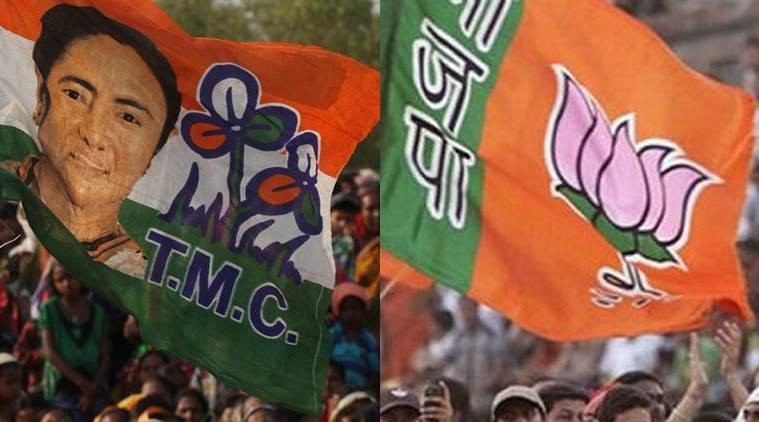
The Modi government’s decision to press ahead with the Citizenship Amendment Bill has expectedly resulted in a major upheaval in the North-East states, especially Assam.
The Bill, which seeks to give Indian citizenship to Hindus, Sikhs, Buddhists, Jains, and Parsis from Bangladesh, Afghanistan, and Pakistan on grounds of religious persecution, has met with strong resistance and even led to street violence in Assam. The Bill pointedly excludes Muslims from this list.
The reaction is not surprising as tensions over this emotive issue had been building up for some time now. There have been several instances of violence and even killings over the past few months. The Centre’s move on amending the Citizenship Bill has rekindled an old fear among the indigenous Assamese people that their cultural identity would be diluted if Bengali speaking outsiders are given legal sanction to settle in their state.
This time their ire is not aimed at Bangladeshi Muslims alone but at all Bengali speakers, irrespective of their religion.
With passions running high, the Bharatiya Janata Party’s ally, the Asom Gana Parishad, pulled out in protest against the Centre’s move to table the Bill in Parliament. The AGP’s decision was not a surprise as it had conveyed its opposition to the Bill to the BJP long before it was passed in the Lok Sabha. The Bill is now pending in the Rajya Sabha and it is expected that it will be taken up in the Upper House when Parliament reconvenes this month-end.
Though the Modi government was well acquainted with the strong public sentiment against the Bill, it ignored the protests and the AGP’s objections and went ahead with its decision to amend the Citizenship Bill. Undoubtedly, the Centre and the ruling Bharatiya Janata Party have taken a calculated political risk as the move could well boomerang.
All of this is being played out at a time when the saffron party is hoping to make big electoral gains in the 25 Lok Sabha seats of this region in the coming general elections to compensate for its losses in other states.
While it is hoping to contain the fall-out in the North-East, the BJP’s real target is West Bengal. Its aim is to use the Bill to consolidate the Hindu vote in its favour in this Eastern state as the party seeks to improve its vote share and tally in the coming Lok Sabha polls.
The BJP has been making a concerted effort over the past several years to expand its footprint in Bengal. It felt emboldened after the party registered a vote share of 17 per cent in the 2014 general election when it won two seats.
As elsewhere, religious polarisation has been the BJP’s calling card in West Bengal. While pandering to Hindu sentiment, the BJP has run a consistent campaign against West Bengal chief minister and Trinamool Congress chief Mamata Banerjee, accusing her of minority appeasement. This trend is expected to pick up further speed in the run-up to the coming general election.
The Citizenship Bill, the BJP believes, can help the party make gains along West Bengal’s border areas where the influx of illegal Bangladeshi nationals is an emotive issue with the locals.
The BJP may have been persuaded to go slow on the Citizenship Bill but for the fact that the draft report of the National Register of Citizens, which identified 40 lakh citizens as illegal immigrants, also included a large population of Hindu Bengalis.
The saffron party has been publicizing the NRC as its commitment to weeding out “illegal foreigners” (read Muslims) with party president Amit Shah making it a point to mention this in all his speeches, going as far as to describe the immigrants as termites which need to be exterminated.
But once the BJP realized that the NRC report was proving to be an impediment in furthering its pro-Hindu campaign, it became imperative for the party to move ahead with the Citizenship Bill.
The BJP’s move is based on an internal assessment that it will be able to ride over the storm in the North East. In fact, it believes that the passage of the Citizenship Bill will improve the party’s acceptability among the migrant workers in Assam and strengthen its position in the Barak Valley, populated by Bengali Hindus.
As far as the other North East states are concerned, the BJP is depending on the dominant regional parties to keep the focus on local issues and not to make the Citizenship Bill its main talking point once the Lok Sabha election draws close.
But this could also prove to be counter-productive. The Centre and the BJP-led Assam government could be confronted with a volatile situation if the “anti-Bengali” sentiment gathers strength in the coming weeks. Similarly, opposition to the Bill by the regional parties in the other North East states may not peter out as is the expectation. As a result, the BJP’s hopes of making any gains in the North East could be dashed.
At the same time, the BJP could, at best, meet with limited success in West Bengal. It may not find it so easy to breach Mamata Banerjee’s “fortress” as she is a tough opponent who continues to retain a firm grip on the state.


.jpeg)

